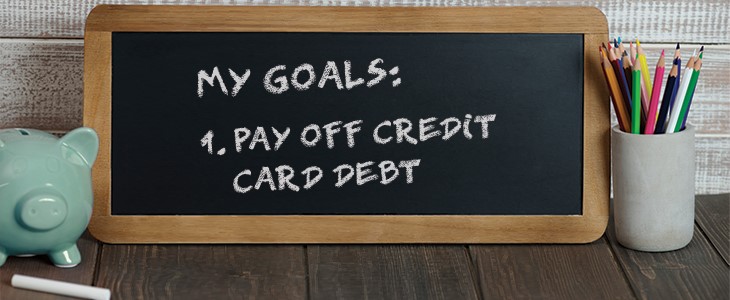Credit card debt hit a record of $986 billion in the United States in the final quarter of 2022. The average credit card user carried a $5,805 balance over that period.
High-interest rates, late fees, and other charges can quickly add up, making it challenging to pay off outstanding balances and get out of debt.
Knowing where to start can be overwhelming and difficult if you are struggling with credit card debt. However, there are a few steps you can take to tackle your credit card debt and get back on track financially.
-
Stop using your credit cards & Assess Your Debt.
The first step in tackling credit card debt is to stop using your credit cards and assess the scope of the problem.
It may seem obvious, but many people continue to use their credit cards even as they struggle to pay off their debt. Taking a step back and assessing your spending habits is essential to break this cycle. Create a budget and stick to it, using cash or a debit card for purchases instead of your credit card.
This will help you avoid adding to your debt and allow you to focus on paying off what you already owe.
Also, you must gather all of your credit card statements and add up your total debt and Make a list of each card you owe money on, the balance owed, the interest rate, and the minimum monthly payment required.
According to Bankrate, 43% of users don’t know their credit card interest rate. This exercise will give you a clear picture of your current debt and help you develop a plan to pay it off.
-
Make a plan to pay off your debt.
Once you have stopped using your credit cards, it’s time to make a plan to pay off your debt. You can use a few different methods to pay off your credit card debt, including the snowball method, the avalanche method, and debt consolidation.
The snowball method involves paying off your smallest debts first and working up to the larger ones. This can help you gain momentum and stay motivated as your debts decrease.
The avalanche method involves paying off the debt with the highest interest rate first, then moving on to the debt with the next highest interest rate. This can save you money by reducing the amount of interest you have to pay.
Debt consolidation involves taking out a loan to pay off all your credit card debts at once, then making one monthly payment. This can simplify your payments and may result in a lower interest rate, but it’s essential to carefully research your options and ensure you can afford the new loan payments.
No matter which method you choose, creating a budget that allallows you to make consistent payments towards your debts is important. Consider cutting back on unnecessary expenses, like eating out or subscribing to multiple streaming services, to free up extra money for debt payments.
-
Negotiate with your creditors.
If you struggle to make your credit card payments, it’s important to contact your creditors and see if you can negotiate a lower interest rate or a payment plan. Many creditors are willing to work with you to find a solution that will help you pay off your debts.
Be prepared to explain your financial situation and provide evidence of your income and expenses. You may also seek the advice of a credit counselor, financial advisor, or money coach to help you negotiate with your creditors.
-
Consider credit counseling.
Credit counseling can be helpful if you are struggling with credit card debt. Credit counselors can help you create a budget, negotiate with creditors, and advise on improving credit scores.
It’s vital to research credit counseling agencies carefully and ensure they are reputable and accredited.
The National Foundation for Credit Counseling is an excellent place to start, as they provide a list of accredited credit counseling agencies in the United States.
-
Avoid taking on new debt.
Finally, avoiding taking on new debt while working to pay off your credit card debt is essential. This may mean cutting your credit cards, preventing new loans or credit applications, and careful spending.
Monitoring your credit score and reporting errors or fraudulent activity to the credit bureaus is also essential. A good credit score can help you qualify for lower interest rates on loans and credit cards in the future, making it easier to manage your finances.
